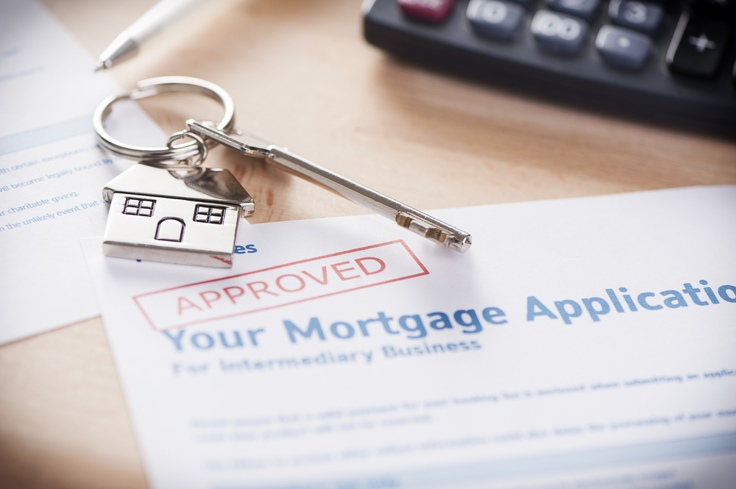There are several different types of mortgage on offer in the UK. Choosing which type of mortgage is best for you is the million-dollar question when purchasing a home of your own. Read on to find out all about the different types of home mortgage loans.
Remember, before you make any decision, it is crucial to do your research to see which type of mortgage suits you best. You must bear in mind your financial situation and how long you will be repaying your mortgage loan for, for instance.
These are the 3 types of mortgage loans available:
There are a wide variety of mortgage types, but each fall into two main categories: fixed rate or variable rate. You may be thinking, what does that mean? Well, don’t fret, we outline the difference between the two below.
1. Fixed-rate mortgages
A fixed-rate mortgage is a mortgage where the interest rate is guaranteed to stay the same for the entire period, regardless of whether the interest rate changes.
This mortgage type can offer peace of mind as you’ll know exactly how much you will need to repay each month for a set period of time. As a result, this is a great type of mortgage loan for first time buyers, in particular.
Fixed-rate deals can last anywhere between one and 10 years, but homeowners are most likely to opt for two- or five-year deals. One-year fixed-rate mortgages are much less common and tend to only be available for people who have specific requirements, such as those buying with a Help to Buy equity loan.
But, generally speaking, the longer the length of the fixed-rate deal, the higher the interest rate will be. This is because the mortgage lender will find it hard to predict what will happen in the market over a long period of time. Therefore, you’re essentially paying for the security of knowing that your rate won’t go up, no matter what happens.
What happens when your fixed-price deal ends?
When your fixed period ends, you’ll be moved on to your lender’s standard variable rate (SVR) mortgage. Each lender sets its own SVR and they are free to change this by any amount at any time, which means you may end up spending a lot more money than first thought.
As a result, before you get transferred onto your lender’s SVR, it is wise to remortgage your property. You can do this either with your current lender or another mortgage provider.

Photo credit: Fabio Balbi / Shutterstock
The pros and cons of fixed-rate mortgages:
Pros | Cons | |
| Fixed- rate mortgage | During the deal period, your interest rate won’t rise, regardless of what’s happening to the wider market. A good option for those on a tight budget who want the stability of a fixed monthly payment. Fixed-rate mortgages can be cheap when interest rates are low. | If interest rates in the mortgage market go down, you may end up paying more than you would on a variable-rate mortgage deal. Furthermore, if you want to get out early, you’ll usually pay high penalties. This means remortgaging to a cheaper deal more expensive than it’s worth – especially after also factoring in arrangement fees, valuation and solicitors’ fees. If you’re looking to move within a few years, you will pay early repayment charges. Transferring your mortgage is sometimes an option but it might end up costing you more than if you were to switch to a new deal. |
2. Variable rate mortgages
There are two main types of variable-rate mortgage, which include tracker mortgages and discount mortgages.
Bear in mind, whether you should go for a fixed or variable-rate mortgage will depend on if:
- You think your income is likely to change
- You prefer to know exactly what you’ll be paying each month
- You could manage if your monthly payments went up
· Tracker mortgages
A tracker mortgage is a loan where the interest rate you pay is based on an external rate (often the Bank of England base rate) and a set percentage too.
For instance, if the base rate is 0.75% and the interest rate was +1%, the amount of interest on your tracker mortgage would be 1.75%. If the base rate increased at any time, the interest rate would also rise.
As a tracker mortgage is a type of variable-rate mortgage, the total amount that you pay each month may be subject to change. With each monthly mortgage payment, some of the money will go towards the interest charged by your lender, and the rest will go towards repaying the money you’ve borrowed. Therefore, this means that if your monthly payments have increased due to a rise in the base rate, the extra money you paid would only cover the increased interest charges. This means that you will be paying more each month without clearing your mortgage debt.
What happens when your fixed-price deal ends?
Once your tracker mortgage ends, your lender will transfer you onto its standard variable rate (SVR) mortgage – just like in a fixed-price mortgage. This means that you will be paying a higher interest rate and your monthly repayments will increase.
To avoid this, it is worth remortgaging your home at the end of your deal period, which is often two or five years.
The pros and cons of tracker mortgages:
Pros | Cons | |
| Tracker mortgage | If the base rate goes down, your monthly repayments will drop too (although this is unlikely to happen in the current market). Your interest rate is only affected by changes in the Bank of England base rate, not changes to your lender’s SVR. Some tracker mortgages don’t have an early repayment charge, which is handy if you want to remortgage or move to a new house. | You won’t know for certain how much your repayments are going to be throughout the deal period. Deals with caps are rare. If your tracker doesn’t have a cap, there’s no limit to what you could pay if the base rate shot up. If you choose a deal with early repayment charges, remortgaging or paying off your mortgage before the deal period ends could cost thousands. |

Photo credit: Wright Studio / Shutterstock
· Discount mortgages
A discount mortgage is a loan where the interest rate is set at an amount below the lender’s standard variable rate (SVR) for either a set period of time (e.g. 2 to 5 years), or for your whole mortgage.
Just like a tracker mortgage, a discount mortgage is a type of variable-rate mortgage, which means that the amount you pay could be subject to change from month-to-month. This is due to the SVR (an interest rate) set by your lender, which can be raised or lowered by any amount and at any time.
Bear in mind that discount mortgage deals tend to be offered for a limited amount of time (between two and five years), compared to other mortgage types. The longer the discounted period, the smaller the amount of the discount tends to be.
What happens when your discounted period ends?
When this time-frame comes to an end, your lender will usually transfer you onto its SVR automatically. This means that your monthly repayments will go up – this is because you will be paying a higher rate of interest. At this point, it is advisable to remortgage your home, either with your current lender or a new provider.
The pros and cons of discount mortgages:
Pros | Cons | |
| Discount mortgages | Your rate will remain below your lender’s SVR for the duration of the deal. When SVRs are low, your discount mortgage could have a very cheap rate of interest. | Your lender could change their SVR at any time, so your repayments could become more expensive. A discount mortgage may have a collar, so that your discounted interest rate cannot fall below a certain percentage, limiting how much you benefit from falls in the SVR. Borrowers with large discounts may be in a particularly vulnerable position when their deal comes to an end, as they could face a large and sudden increase in their interest rate when they’re moved to the lender’s SVR. |
NOTE: Whether you should choose a fixed or variable-rate deal depends on whether you think your income is likely to change, whether you prefer to know exactly what you will be paying each month and whether you could cope if your monthly payments went up.
Mortgage features to look out for:
· Flexible mortgages
Flexible mortgages allow you to either overpay or underpay, depending on your financial circumstances. They also enable you to take payment holidays or make lump sum withdrawals. Consequently, this means that you could pay your mortgage off early, whilst saving on interest.
Although it is still possible to overpay with other mortgage types, many ‘normal’ deals will only allow you pay extra up to a certain amount – this is typically up to 10% each year.
Flexible mortgages also offer “offset mortgages”, where your savings are used to offset the amount of your mortgage you pay interest on each month. But, it is important to carry out thorough research on flexible mortgage features before taking one out with a lender, as in some cases it can be more expensive than a conventional mortgage deal.
· Cashback mortgages
Some mortgage deals will give you a cash back if you take out a mortgage with them, known as a “cashback mortgage”.
When moving, it is undeniably appealing to be offered a cash sum, however these deals aren’t always the cheapest once you’ve calculated fees and interest. Therefore, make sure you take the total cost into account before choosing a mortgage deal.
If you are struggling to mortgage your home, you might want to sell your property fast and move elsewhere, to ensure you don’t end up financially out-of-pocket. Here at Sellhousefast.uk, we purchase your property – no matter what the condition – within 4 weeks.
If you choose to head down this route, please be aware of “we buy houses for cash” companies who aren’t legitimate.
RELATED: Reasons You Might be Refused a Mortgage
Feature image credit: Wright Studio / Shutterstock




